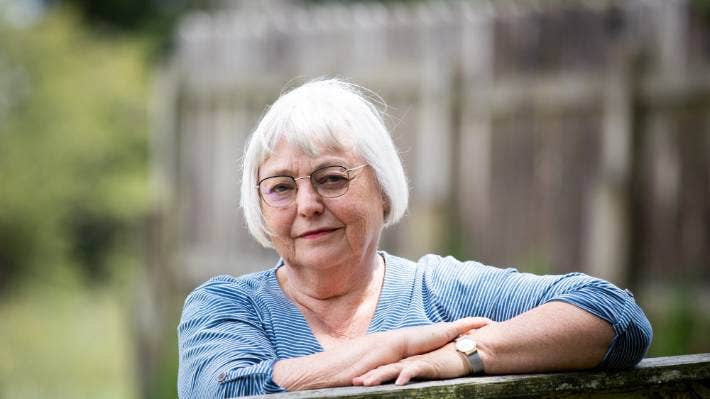CHRISTCHURCH (NEW ZEALAND)
Stuff [Wellington, New Zealand]
February 27, 2021
By Mariné Lourens
Thousands of New Zealanders were sexually abused as children in state care and faith-based institutions, but will never get the justice they need to move forward. MARINÉ LOURENS reports.
He was 12 years old when the abuse started.
The principal at his elite Christchurch Catholic school would call the boys to his office to check their lunch boxes. When J arrived, the principal would take him into his office and tell him his parents had sent him to the school “to help him become a man”.
It started with the principal giving him a pornographic magazine to look at, and asking him how it made him feel. Over the next two years, J was raped weekly, mostly in the principal’s office, but sometimes in the cathedral behind the school or the changing rooms of the local community swimming pool.
“When he raped me, I couldn’t ride my bike home.”
Forty years later, J still remembers his fear of the big man who liked to use his cane. The cane often lay on the desk in his office while the abuse happened.
J remembers walking back to class afterwards in terrible pain and with wet stains on his pants. Sometimes his fear of his abuser caused him to wet himself.
“No-one wanted to hang out with me because I was the kid that pissed himself.”
On Sunday evenings he would be sick with fear of going to school on Monday. He would hide behind the building or try to disappear in groups of boys to avoid the principal.
“But he could always get me at the lunchtime lunchbox check.”
When J told his father what was happening, he claimed “a man of the cloth would never do such a thing” and forbid J from ever talking about it again. So he didn’t.
But last year, after two suicide attempts, he finally told his story to the Royal Commission of Inquiry into Abuse in Care.
Legislation ‘unfair and outdated’
Over the past three years, the inquiry has exposed the sheer extent and severity of the abuse that occurred over decades in state care and faith-based institutions. In one of a series of reports, the commission estimated as many as a quarter of a million children were likely to have been abused between 1950 and 1999.
But while the commission continues its work, thousands of victims are living broken lives waiting for justice.
Christchurch lawyer Mobeena Hills has spent most of her career fighting to get justice for abuse survivors. Hills, who specialises in abuse law, is currently representing J in a compensation claim against his old school.

But as with most similar claims, their hands are very much tied by what Hills describes as “unfair and outdated” legislation. It prevents victims from bringing a claim more than six years after the abuse occurred.
As the evidence already presented to the royal commission has shown, it takes most survivors years or even decades to report their abuse to authorities.
“The limitation period in NZ … simply doesn’t make sense. We know that on average it takes a survivor 26 years to come forward,” Hills says.
The legislation has knock-on effects too, such as forcing survivors to accept paltry compensation payments as they are effectively made to “take it or leave it”. If they reject the institution’s offer and go to court, it’s likely their claim will be barred by the limitation principle, and they’ll end up with a massive legal bill.
J’s former school offered him an ex gratia payment of $15,000, which was later increased to $20,000. The offer was a “slap in the face”, Hills says.
“With that payment would have come a deed to stop him from making a claim down the track, when hopefully New Zealand moves with the times and lifts limitation periods.”
In its latest handbook for historic claims, the Ministry of Social Development sets out guidelines for compensation based on the level of abuse suffered. About 62 per cent of all claims are deemed category 2 or 3. Category 2 claims are offered compensation of between $6000 and $15,000, while category 3 claims are paid between $16,000 and $25,000.
Hills previously represented a man who was abused at an elite school in New South Wales, Australia.
“We claimed for his loss of income, loss of opportunity, and pain and suffering, and got him a six-figure settlement. From there he was finally able to move on. He got the apology he deserved and was able to carve out a career for himself.”
[Video caption] The numbers are astounding – figures from the Royal Commission into Abuse in Care estimate there are up to a quarter of a million victims over 70 years. (Video first published in December 2020)
Hills says no amount of money can make up for the trauma of child sexual abuse, but it can provide survivors with a door to the better life that was stolen from them.
The Australian Royal Commission into Institutional Responses to Child Sex Abuse recommended abolishing time limitations, and all states and territories have since removed time limits for personal injury claims in child sex abuse cases.
“Surely New Zealand can learn from Australia and not waste time reinventing the wheel? Our victims need options, and they need them now,” Hills says.
Reliving the nightmare
For sexual abuse survivor S, a compensation claim is not something she is willing to consider.
“The toll that it takes to relive it all over again … it just knocks me around too much. I don’t think I’ll be able to work and go through all of this as well.”
Sharing her story with the royal commission is also not something she is willing to do.
“I don’t think it will help. Still today I read media reports about teachers being involved in sexual abuse, but not being struck from the register and continuing to teach. Nothing has changed since the 80s.”

S was 14 when she was abused at a Canterbury church camp run by volunteers in the 1980s. The man who abused her was about 40 and worked as a Bible tutor.
More than 20 years passed before S finally had the courage to tell her devout Catholic mother about the abuse she had suffered. Her mum immediately knew it was true – she had seen how withdrawn her daughter had become after that camp.
S reported the abuse to police in 2004. It was a disillusioning and traumatic experience. Police questioned the man involved, and he denied anything happened.
“When the police officer came back to me, he probably told me something about not having enough evidence for a prosecution. But I just didn’t hear that. All I remember is when he told me that my ‘alleged rapist’ sends his regards.”
When S asked her local church where she could report the abuse, she was given a number for the church’s lawyers. Refusing to have her ordeal swept under the legal carpet, she emailed the Catholic Church and was given contact details on where to report the abuse.
“It was then that I knew I was not the only one who had been abused at those camps,” she says.
[Video caption] Public Service minister Chris Hipkins addresses the interim report of findings by the Royal Commission of Inquiry into Abuse in State and Faith-based Care that was released in December 2020. (Video first published in December 2020)
Her report was referred to Catholic Church employees who were tasked with taking a statement from her and investigating the claim.
“I just told them, ‘I am not talking to you’. They work for the Catholic Church. How can they be the ones investigating this? This had to be investigated by an independent entity.”
She never heard from the church again.
A deadline for justice
S’s experience is not unique. Criminal prosecution of historic abuse cases is difficult for obvious reasons. Evidence may no longer exist, police have to deal with fallible human memory that tends to become foggier over time, and key witnesses may no longer be alive.
For many abuse survivors, civil claims are the only way to get the acknowledgement, apology and redress they deserve.
“Those hanging their hat on this technical defence of a limitation period should be ashamed,” Hills says.
“Instead government, institutions and schools should address what has happened to these young children on their watch, pay appropriate compensation and let them move on with their lives.”
It is not about money, J says. It is the opportunities lost, stolen by the abuser.
“When you look back, you realise all the years that you’ve lost, how different your life could have been if this didn’t happen.”
Hills believes there is already more than enough evidence in the public arena to clearly show some of the changes that need to be made.
“Justice can be a springboard for healing, but for New Zealand victims that justice could still be years away,” she says.
The royal commission is not set to present its final report to the Government until January 2023.
“Yes, the royal commission’s work is desperately needed and will dictate improvements to protect future generations,” Hills says.
“But in the meantime, let’s get on with it and do what we can do to start the healing for our survivors.”
